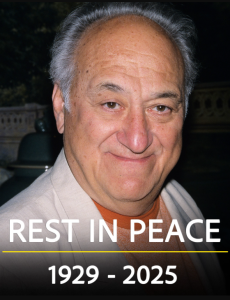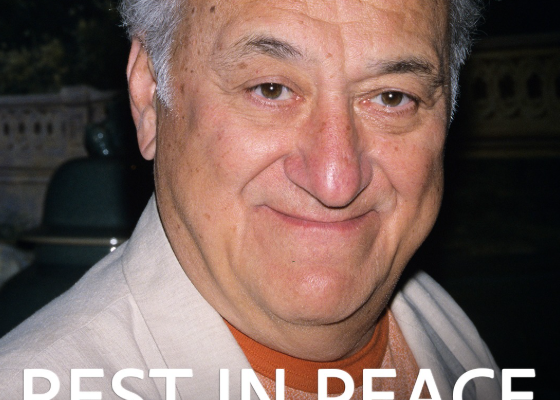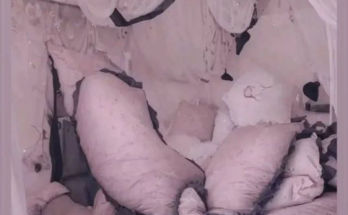Jerry Adler, the beloved character actor best remembered by many for his role as Hesh Rabkin on the groundbreaking HBO drama The Sopranos, has died at the age of 96. His passing marks the end of a long, varied, and deeply respected career that spanned more than seven decades across stage, television, and film.
Adler’s death was confirmed by family members, who shared that he passed peacefully surrounded by loved ones. Almost immediately, tributes began pouring in from fans, colleagues, and members of the entertainment industry. Though not always the most famous face in the room, Adler was one of those rare performers who seemed to elevate every project he touched.
Born in Brooklyn in 1929, Adler grew up immersed in the world of theater. His family had roots in the garment business, but he was drawn to the arts from an early age. By his twenties, he was already making a name for himself on Broadway—not only as an actor, but also as a skilled stage manager and director. This behind-the-scenes expertise would shape much of his career and earned him a reputation as one of the most versatile and dependable talents in the business.
Adler’s Broadway credits were extensive. He worked on some of the most significant productions of the mid-20th century, including My Fair Lady, where he served as stage manager during its original run. Later, he transitioned more fully into acting, bringing his sharp timing, expressive face, and unmistakable Brooklyn cadence to roles that often blended humor with gravitas.
Yet for many, his defining role came much later in life. In 1999, Adler was cast as Herman “Hesh” Rabkin in The Sopranos. Hesh was a shrewd Jewish record producer and longtime advisor to Tony Soprano, played by James Gandolfini. While not a mobster himself, Hesh moved in the same circles, offering counsel and occasionally clashing with the crew over money and business. Adler brought warmth and wit to the role, balancing Hesh’s streetwise toughness with a paternal edge that made him one of the show’s most beloved secondary characters.
Fans of The Sopranos often recall Hesh as a moral touchstone within the series—a man who understood the criminal world but never fully succumbed to it. Adler’s understated performance made Hesh memorable without needing the flashiness of violence or betrayal. His chemistry with Gandolfini was especially praised, with their conversations offering some of the show’s sharpest insights into power, loyalty, and the cost of survival.
After The Sopranos, Adler continued working steadily, appearing in shows like Rescue Me, Brooklyn Bridge, and The Good Wife. He also popped up in films, lending his talents to both comedies and dramas. To younger audiences, he was recognizable as Howard Lyman, the delightfully stubborn building tenant on the sitcom Mad About You. Each role, whether comedic or dramatic, carried his signature blend of grounded realism and sharp humor.
Colleagues remembered Adler not only as a consummate professional but also as a generous collaborator. Actors who worked with him often spoke of his kindness on set, his willingness to mentor younger performers, and his infectious laugh. Behind the tough, often no-nonsense characters he played, there was a man of great warmth and humility.
As news of his passing spread, tributes poured in. Michael Imperioli, who played Christopher Moltisanti on The Sopranos, called Adler “a true gentleman of the craft, whose presence made every scene better.” Lorraine Bracco, who played Dr. Jennifer Melfi, described him as “a quiet giant—a man whose work spoke volumes, whose friendship was cherished.” Fans on social media shared clips of Adler’s most memorable Sopranos scenes, recalling lines that had become iconic.
Adler’s longevity in Hollywood was no accident. He had an adaptability that allowed him to move seamlessly between genres and mediums. In an era when many actors struggled to find steady work past their prime, Adler flourished well into his 70s, 80s, and even 90s, a testament to his enduring skill and professionalism.
His personal life was marked by stability and devotion. Married for many years, he was a father and grandfather, often crediting his family as his grounding force amidst the unpredictability of show business. Friends described him as a man who, despite his fame, never lost his humility or his sense of humor.
The death of Jerry Adler is not just the loss of a recognizable face from television, but the passing of an era of actors who built careers on craftsmanship rather than celebrity. He was not a headline-seeker, nor the type to dominate gossip columns. Instead, he let his work speak for itself—and it spoke loudly, across generations.
For fans of The Sopranos, his passing adds another layer of poignancy to a show already shadowed by the loss of its iconic lead, James Gandolfini. Together, they helped define one of television’s greatest dramas. Yet Adler’s work ensures that Hesh Rabkin, like so many of his roles, will continue to live on—on streaming platforms, in DVDs tucked away on shelves, and in the collective memory of audiences who admired his talent.
As the credits roll on a life well lived, Jerry Adler leaves behind more than just performances. He leaves behind a legacy of professionalism, humility, and artistry that reminds us why character actors are the backbone of storytelling. They may not always be in the spotlight, but without them, the worlds we love—whether in theater, film, or television—would not feel nearly as real.
Jerry Adler, gone at 96, leaves behind a body of work that will endure for decades to come.



